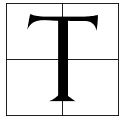Member-only story
Prohibition Then, Abortion Bans Now
What can last century’s war on alcohol teach us about the current war on reproductive rights?
 The Supreme Court’s decision in Dobbs v. Jackson Women’s Health Organization means that abortion services — used by at least 25 percent of all Americans who may become pregnant — have been criminalized in about half the country, or soon will be. It is difficult to grasp what that means for our immediate future, but one hint comes from the last time we enacted a blanket ban on a common practice: the Prohibition Era.
The Supreme Court’s decision in Dobbs v. Jackson Women’s Health Organization means that abortion services — used by at least 25 percent of all Americans who may become pregnant — have been criminalized in about half the country, or soon will be. It is difficult to grasp what that means for our immediate future, but one hint comes from the last time we enacted a blanket ban on a common practice: the Prohibition Era.
The Antiliquor Movement Begins
Prohibition started as a fringe movement in the 1830s, peddled by a few individuals promoting “temperance” on religious grounds during a time when Americans were drinking an average of five gallons each of distilled liquor annually. Over time, most Protestant evangelical churches adopted these views as official policy. Ministerial voices eventually became loud enough to catch the attention of local and state politicians. In 1851, after two decades of clerical activism, Maine became the first state to pass a ban on “drinking houses and tippling shopes.”
Toward the end of the nineteenth century, the Protestant temperance movement fused with the flourishing women’s movement. The Woman’s…
